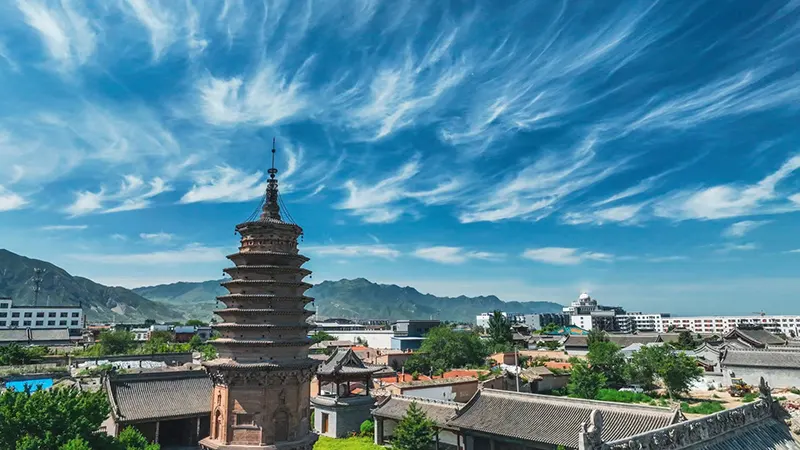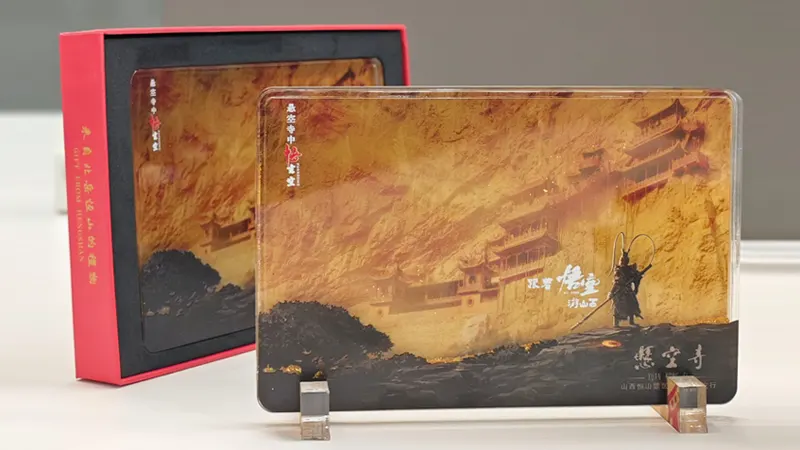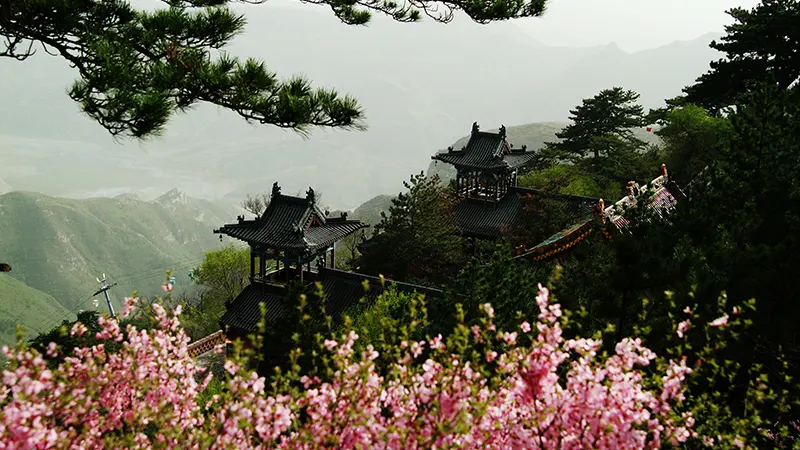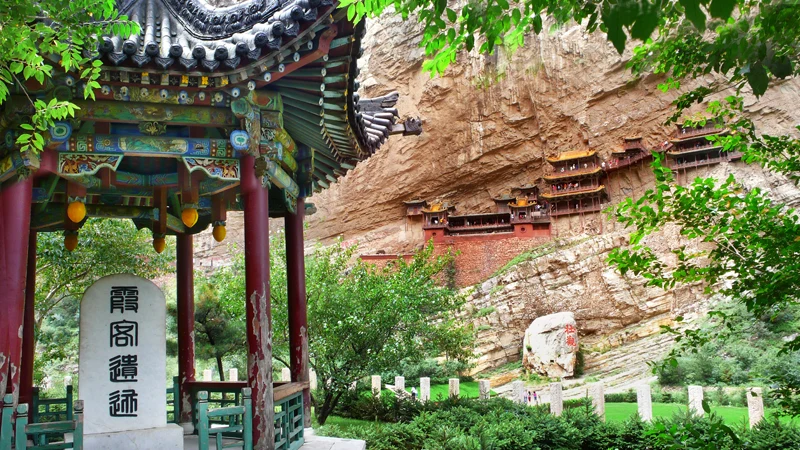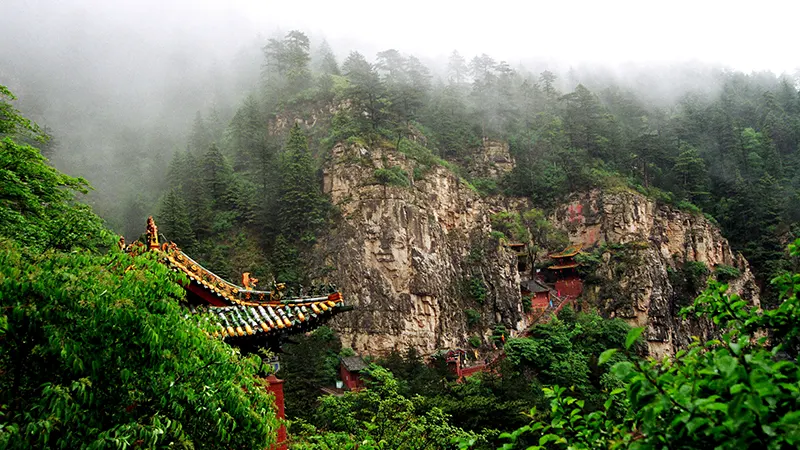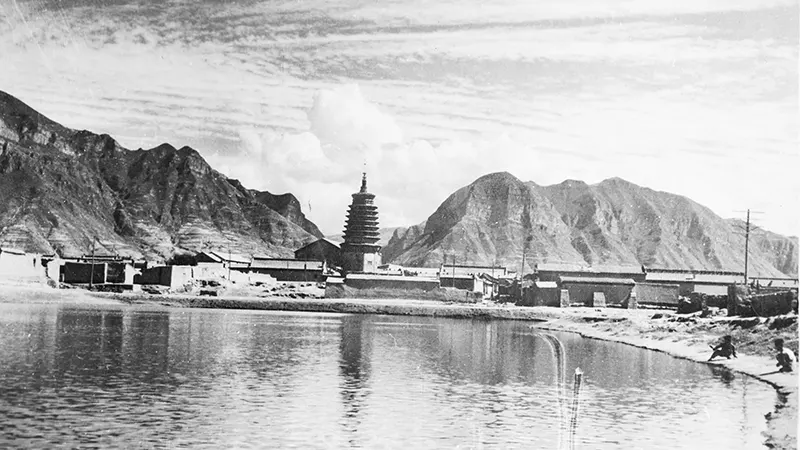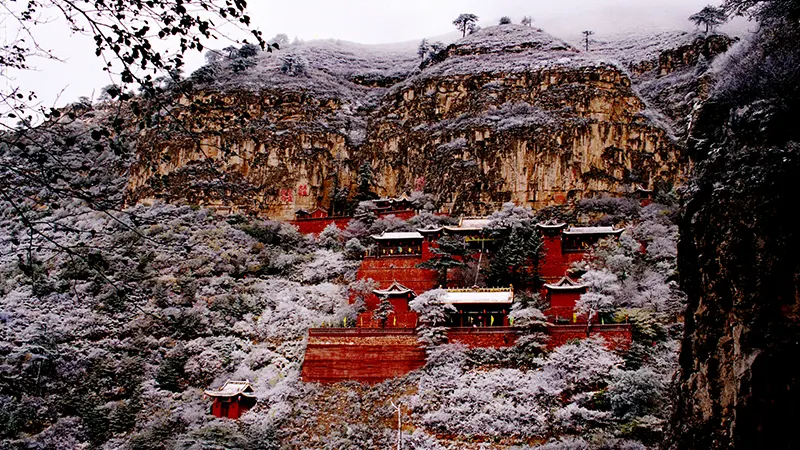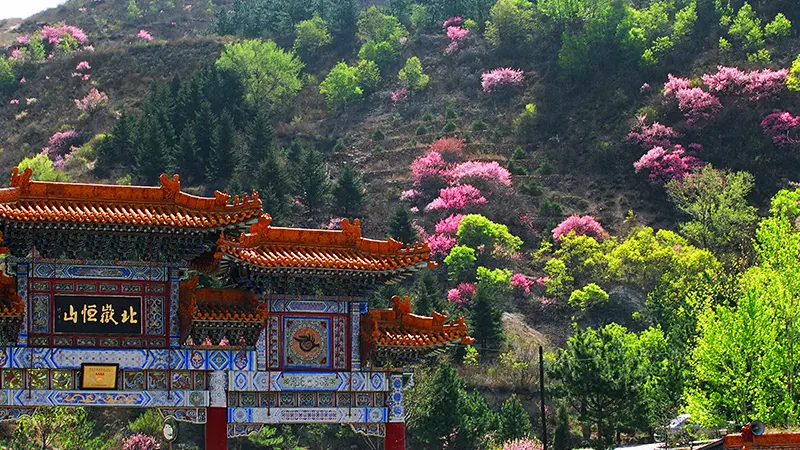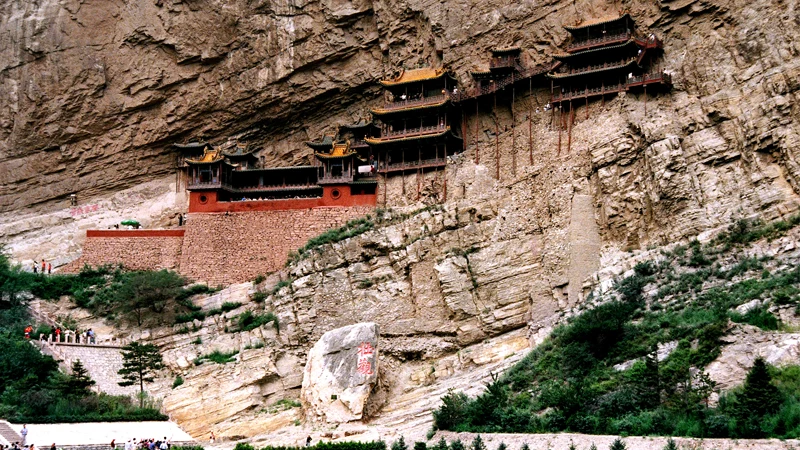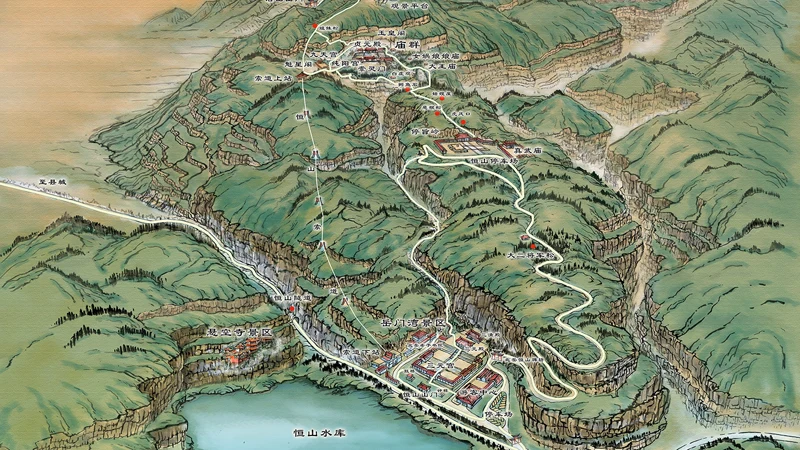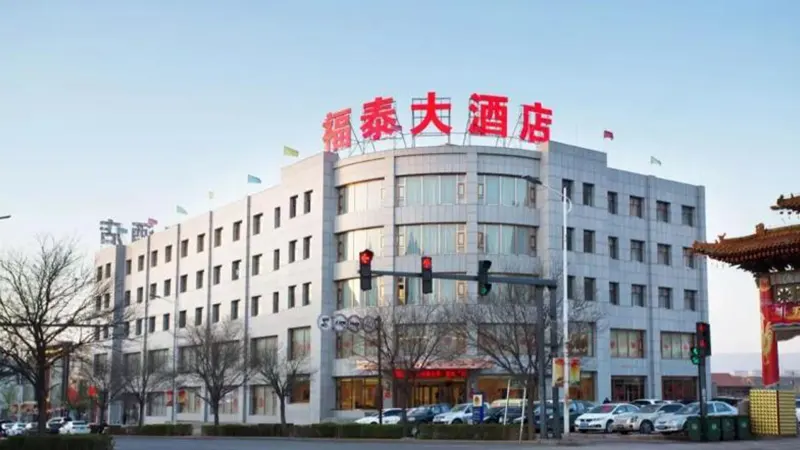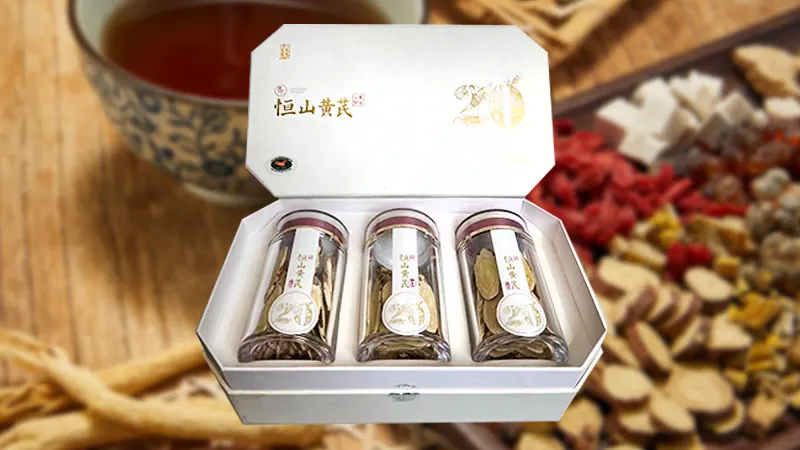Master Hongyi and Henglu Academy: An Indelible Bond
Publish Time:
2025-03-14 16:09
Source:
Master Hongyi is a legend. If he were alive today, he would definitely be the hottest internet celebrity and idol, garnering countless fans and their fervent admiration, regardless of age, profession, or gender.
Beyond the long pavilion, by the ancient road, fragrant grasses stretch to the sky. The evening breeze whispers through the willows, the flute music fades, the setting sun dips behind distant hills. At the edge of the earth, at the end of the world, half of my friends are scattered. A bowl of turbid wine empties our joy, tonight's parting dreams are cold. In the young, confused minds of adolescents, the storyline of the movie "Childhood in the Old Town" might be unclear, but the fresh and elegant lyrics, the mournful and sorrowful melody, and the imagery of the long pavilion and ancient road, are deeply imprinted in the hearts of those who have seen it. Therefore, I began to want to explore the person who created the lyrics of this "Farewell", wondering what kind of extraordinary talent could bring these commonplace scenes together to create such a perfect masterpiece. Thus, I gradually entered his world, a brilliant and dazzling world, a supremely cool world, a world of extreme passionate fire and gentle, compassionate water, both contradictory and harmonious; that is the extraordinary life of Master Hongyi. And when I learned that this idol and my hometown – Henglu Academy in Hunyuan County, Datong City, Shanxi Province – had an inexplicable connection, as a devoted fan of Master Hongyi, I instantly experienced the great surprise of receiving an unexpected gift.
I. Master Hongyi, a Legend of Humanity
Master Hongyi is a legend of humanity. If he were alive today, he would absolutely be the hottest internet celebrity, the most popular idol, and would certainly receive the fervent worship of countless fans, regardless of age, profession, or gender. The famous writer Zhang Ailing commented: "I have never been a proud person, at least outside Master Hongyi's temple, I was so humble." Master Hongyi, whose secular name was Li Shutong (1880-1942), had the courtesy name Wentao, childhood name Chengxi, given name Guanghou, literary name Xishuang, alias Shutong, etc., with nearly two hundred aliases. After becoming a monk, his Dharma name was Yanyin, and he was known as Hongyi, with the later name Wanqing Laoren. He was born in Hedong, Tianjin, his ancestral home was Hongdong, Shanxi. His family moved to Tianjin during the early Ming Dynasty. Because his mother was originally a peasant woman from Pinghu, Zhejiang, he later moved south to Shanghai with his mother, often claiming to be from Pinghu, Zhejiang, in memory of his mother.
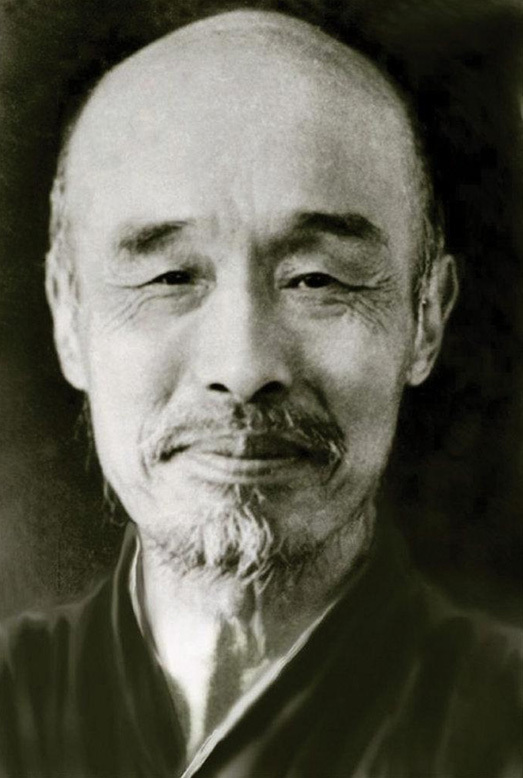
He was a wealthy and elegant young gentleman. He was born into a wealthy family in Tianjin. His father, Li Shizhen, whose courtesy name was Xiaolou, was a Juren scholar during the Daoguang era and a Jinshi scholar during the Tongzhi era. He once served as a director in the Ministry of Personnel but resigned in anger due to factional strife in the court, later engaging in salt and banking businesses. Years later, he developed into a wealthy family with many wives and concubines, a prominent family in Tianjin. Due to his charitable nature, he was also known as "Li, the Benevolent." However, despite having many wives and concubines, the Li family was short of male descendants. Before Shutong's birth, the Li family had two sons. His elder brother, Wenjin, who was nearly fifty years older than Shutong, had already passed away; his younger brother, Wenxi, who was twelve years older than Shutong, was naturally frail, and it was feared he would not live long, thus his father took Shutong's mother, Madam Wang, as a concubine. So in the large family, although Li Shutong was born out of wedlock, as the late-in-life son, he lived a life of comfort and received abundant love. Since ancient times, young men have been known for their romantic nature, and since ancient times, literati have been known for their sentimentality. As a young, wealthy, and talented man, Li Shutong was no exception. During a recreational outing to a flower-filled tavern, he fell in love with the famous actress Yang Cui-xi at first sight, sharing moonlit moments and affectionate glances. However, fate always plays tricks. Yang Cui-xi later reluctantly married a merchant, and a youthful, beautiful romance vanished into thin air. Afterward, his mother, in order to guide his youthful impulsive feelings and help him settle down, quickly arranged his marriage to Yu, the daughter of a wealthy tea merchant of similar social standing. In the open and free city of Shanghai, where his family owned a bank, he lived a life free from financial worries. After settling in Shanghai for a short period, unable to express his feelings of concern for the state of affairs, he turned to the entertainment scene for solace, joining the "Chengnan Literary Society" founded by Xu Huanyuan, a wealthy young man, and forming a brotherhood with Xu Huanyuan, Zhang Xiaolou, Cai Xiaoxiang, Yuan Xilian, and others of similar age and interests, calling themselves the "Five Friends of Tianya." He always carried a large amount of money and was generous, regularly participating in and organizing literary gatherings, often engaged in poetry, wine, and music, emulating the style of the Eastern Jin literati. He once wrote a poem for the "Five Friends of Tianya." One of them is "A Playful Poem to Cai Xiaoxiang in Four Quatrains": "Worries between the eyebrows, sentiments by the candlelight, delicate hands gently clasp, a handful full. Those blessed with beautiful women, truly enviable, servants all call him sir. Hair loosely coiled, light application of powder, a look of Western style at the moment she bows. Since becoming ill and listless, her beauty diminished by a few eyebrow lines. A slimmer waist than a willow, Liu Zhen keeps staring at her. Feigning shyness, she slightly shows her clove tongue, a hint of rich fragrance is her lipstick. I wish to have the elixir of life, to cure all short-lived flowers. This is a profound skill, famous throughout the Hujiang area." From the lines of the poem, we can see the carefree and unrestrained nature of Li Shutong's life and his sincere feelings for his friends. After Li Shutong became a monk, he recalled this time of sincere friendship with his friends, often remembering them and unable to forget them. Afterward, having lost his direction in life, he went abroad to study in Japan. Being from a wealthy family, unlike others who received government-sponsored scholarships, he was self-funded and, therefore, unlike others who had to follow the fixed arrangements of the Qing court, he could freely choose the subjects that most interested him. During his studies, the elegant Li Shutong fell in love at first sight with a Japanese girl in the land of cherry blossoms. Out of admiration for Chinese culture and for Li Shutong, this Japanese girl irrevocably fell in love with him and took on the responsibilities of his daily life, studies, and social interactions. Every day, with a beautiful woman by his side, surrounded by warmth, surrounded by poetry, wine, calligraphy, and painting, he enjoyed the treatment unavailable to ordinary people. However, after all, this luxurious and comfortable life was "a foreign land, not my home." Li Shutong, with his heart filled with the desire to save the world, would not always revel in it. He would not turn "Hangzhou into Bianzhou." Wealth, glory, beautiful wives, and concubines were merely temporary needs in his life and feelings, and they could not forever bind his young heart's desire to save the nation and serve the world. After Li Shutong converted to Buddhism and became an ascetic monk, he repented for having lived a life of luxury and comfort while others were suffering, and for having sought solace in entertainment. In 1903, he wrote the poem "Past Events" to express this sentiment, the opening line being: "Wind and rain recall past events, regretting the pleasures of the entertainment world." }, {
He was a person of profound learning and extraordinary talent. He was a master who, at the age of twenty, astonished the country with his literary talent. He was a polymath, excelling in poetry, ci (classical Chinese verse), calligraphy, painting, seal carving, music, drama, and literature, pioneering many aspects of Chinese culture and art. He also made creative explorations in education, philosophy, law, Chinese character studies, sociology, advertising, publishing, environmental and wildlife protection, and human fasting experiments. He was the first modern Chinese student to study abroad with art as his major, demonstrating profound artistic skills in both Western and Chinese painting. He was a pioneer of modern music in China, the first to compose music using five-line notation, publishing several of his own compositions under the name "Li Ai". He was the first to introduce Western music theory to China and was one of the earliest promoters of "school songs". His song "Farewell" was used as the theme song for the films "Early Spring and February" and "The Story of the South City", and has remained popular for decades, becoming a timeless classic. He also actively collaborated with Zeng Xiaogu, Ouyang Yuqian, and Xie Hangbai, who had studied in Japan, to establish the "Chunliu Drama Society", organizing the first drama troupe and staging plays such as "La Traviata", "Uncle Tom's Cabin", and "New Butterfly Dream", becoming a pioneer of Chinese drama. He also edited the publications "Wenmei Magazine" and "Pacific Ocean Daily", which became major platforms for promoting culture, art, and public artistic awareness. His calligraphy, inspired by the Qin and Han dynasties and refined through studying the steles and rubbings of the Six Dynasties, was almost indistinguishable from the originals, pushing the art of ancient Chinese calligraphy to its peak. His style was characterized by "rustic simplicity and perfection, as if naturally formed". His calligraphy and his life were inseparable, and even scraps of his writing were treasured by collectors. Even modern cultural figures like Lu Xun and Guo Moruo considered obtaining a piece of his calligraphy the highest honor. He was an outstanding art educator, teaching in Tianjin, Nanjing, Shanghai, and Hangzhou, and cultivating a generation of cultural giants, including Feng Zikai, the "father of Chinese comics", the musician Liu Zhiping, the famous writer Cao Juren, and the famous painter Pan Tianshou, among many others. His collaboration with his student Feng Zikai on the "Protecting Life Painting Collection", a combination of poetry and painting, was widely praised. Hegel said: "The artist's good fortune is to be able to enjoy in art a freedom that cannot be enjoyed in the world." Li Shutong also temporarily relieved his anxieties and worries through art.
He was an extraordinary and unconventional person. He opposed hypocritical Confucian rituals, single-handedly challenging established customs with remarkable courage. He was deeply displeased with the prevailing social trend of treating people differently based on their social status, and acted in direct opposition to his brother, showing respect to the poor and humble, and treating the rich and powerful with indifference. He had a fondness for cats, and his sense of injustice sometimes led to extreme behavior. He often treated cats with the same respect he would show a person, sometimes showing less respect to people, leading some to consider him eccentric. Even during his studies in Japan, he sent telegrams specifically to inquire about the well-being of his cats, perhaps as a form of extreme protest against the social hierarchy. When his mother passed away in Shanghai, his brother in Tianjin, adhering to traditional customs, refused to allow her memorial tablet to be brought into the house. Disgusted by these customs, the master decided to hold a modern funeral, disregarding social conventions and omitting all traditional formalities. In front of over four hundred guests, he played the piano himself, performed a self-composed elegy, and had children sing a chorus, causing a sensation. He was filled with patriotic fervor, always ready to take the lead in patriotic causes. In the face of national crisis and devastation, he participated in the organization of the "Qiangxuehui" (Self-Strengthening Society) and actively participated in the reform movement led by Kang Youwei and Liang Qichao. His patriotic fervor was evident in a seal he carved that read "Mr. Kang of Nanhai is my teacher", expressing his support for Kang Youwei and Liang Qichao, which led the authorities to view him as a rebel. In his artistic pursuits, he was free-spirited, unconventional, and unafraid of tradition. At the Chunliu Drama Society, he cross-dressed and played the female lead in "La Traviata", his beautiful appearance and superb acting skills causing a sensation in Shanghai and marking the beginning of Chinese drama. He was a pioneer of oil painting, breaking with convention by being the first to use nude models for art instruction, causing a stir at the time.
He was a highly respected and virtuous Buddhist monk. As a child, the master could already recite the "Great Compassion Mantra" and the "Mantra of Rebirth", planting the seeds of Buddhist faith. When his father, Shizhen Gong, was seventy-two years old, he fell ill with dysentery and, knowing his time was near, his illness miraculously subsided. He then instructed his servants to invite a high-ranking monk to recite the Diamond Sutra in his bedroom. Shizhen Gong listened quietly without allowing anyone to enter, lest they disturb his peace. The master, then only five years old, also peeked in to inquire. "When his father passed away, he did so without pain, peacefully, as if entering a state of meditation. The coffin remained at home for seven days, with monks reciting scriptures daily, sometimes in three shifts. The master, observing the monks' actions, found them admirable and inspiring. Later, he often played "Yamakou Toshoku" (a Buddhist ritual) with his nephews, always taking the seat of the chief monk." The early loss of his father and mother, the internal strife within his extended family, the separation from friends like Xu Huanyuan, the decline of his family's fortunes, the dark and corrupt times, and his father's Buddhist faith all contributed to his feelings of the impermanence of life, paving the way for his later entry into the Buddhist monastic order. With many Buddhist temples in the Jiangnan region, Li Shutong, while teaching in Hangzhou, often visited temples to escape the mundane world. One day in 1916, a socialite came to the school to give a lecture. Disliking crowds, he and his friend Xia Mianzun hid in a pavilion to drink tea. Xia Mianzun's offhand remark, "For people like us, becoming a monk would be quite good," struck a chord with Li Shutong. He went to the Hupeng Temple and fasted for 20 days. The morning bells and evening drums, the lamps and Buddhist scriptures, far from the worldly clamor, seemed to offer a final destination for his soul, which had been wandering for forty years. He decided to become a monk. He left only a letter for his Japanese wife, Seiko. "Making this decision is not because I am heartless or unfeeling. For the sake of the more eternal and arduous path of Buddhism, I must give up everything. I am giving you up, and I am giving up the fame and fortune I have accumulated in this world. These are all fleeting, not worth cherishing. We are to build a future glorious Buddhist kingdom, and we will meet again in the Western Paradise!" At the age of 39, he resigned, distributed all his clothes, books, and paintings to his friends and students, and took refuge at the Dinghui Temple in Hupeng under the guidance of Master Wu, taking the dharma name of Yan Yin and the sobriquet of Hongyi. After becoming a monk, Master Hongyi lived a simple and austere life, strictly observing the precepts of the Vinaya school. He abandoned all material desires, wearing simple robes and straw sandals, traveling and teaching, extensively studying Buddhist scriptures from both China and the West, collating the three major works of the Nanshan school, and reviving the study of Vinaya, being revered by Buddhist disciples as the eleventh-generation patriarch of the Vinaya school. At the age of 63, knowing his time was near, he calmly wrote his will, arranged his affairs, and then wrote his final words of wisdom: "A mixture of sorrow and joy." These four short words encapsulate his lifelong insights from his practice. After the master's cremation, more than 1800 relics were obtained. From then on, half a life of elegance, half a life of emptiness, Li Shutong is no more in this world. Some say that Master Hongyi lived several lifetimes in one. Master Taixu once gave a verse: "Imprint the heart with teachings, and discipline the body with precepts, purity inside and out, the cause of Bodhi." Mr. Zhao Puchu commented on the master's life as: "Countless rare treasures are offered to the world's eyes, a full moon shines on the heart of heaven." The famous national studies master Ma Yifu commented on him in "Hongyi Lawyer's Robe Pagoda Inscription and Inscription": "To his upholding a pure heart, and practicing strict conduct, he clearly followed the ancient virtues, which can be called the bulwark of the Dharma realm, and the model for people and heaven."
II. Henglu Academy, the leader of the academic circles in North Shanxi
Hunyuan County is blessed with outstanding people and a beautiful environment. Located in the heart of Yunzhong, the county is characterized by towering peaks, steep cliffs, and majestic momentum, with the scenery described as "looking far, one doesn't know how many miles away, looking up, one only sees thousands of mountains low." Almost every mountain has scenery, every ridge has ancient ruins, every peak has the traces of immortals, and every ridge has legends. Mount Hengshan, along with Mount Tai (East), Mount Hua (West), Mount Heng (South), and Mount Song (Central), are collectively known as the Five Great Mountains, renowned throughout the country. It represents the beautiful mountains and rivers of China, symbolizes the country and its people, embodies the national spirit, and is a symbol of traditional culture. It is the "sacred mountain" of the Chinese nation and a shared natural and cultural heritage of all mankind. The main peak, Xuanwu Peak (also known as Tianfengling), is located 4 kilometers southeast of Hunyuan County, with an altitude of 2016.1 meters, towering into the clouds, majestic and imposing, and known as the "North Pillar of Heaven and Earth," "Famous Mountain of the Remote Frontier," "Number One Mountain of Suofang," and "Fifth Cave Heaven." A sacred mountain must be accompanied by sacred water. The water in Hunyuan is diverse and magical. After seeing the colors of the water in Hunyuan, tourists will directly regard Hunyuan as Hangzhou. The Hun River and Tang River are the mother rivers of Hunyuan, flowing on both sides, where they flow, the vegetation is lush, and the products are abundant; Hengshan Mountain Reservoir, "Iron Wall Locking the Dragon," "Pine trees line the mountainside, thousands of layers of green, the moon dots the heart of the waves, a pearl," the scenery of mountains and water intoxicates tourists; Tangtou hot spring water is as warm as soup, can cure all diseases, its moisturizing effect is miraculous, and washing with it immediately heals; Shenxi Wetland, with its rippling blue waves, fish swimming in shallow water, geese flying across the sky, and fishermen singing at dusk, presents a unique northern water town scenery, a national-level wetland park.

With its beautiful mountains and waters, Hunyuan is blessed by nature. There are many cultural relics in Hunyuan, from the Liyu painted pottery cultural site of the late Neolithic period and the bronze ware site of the late Spring and Autumn period, to the ancient Great Wall site and the ancient city site of Guicheng Shejie, all telling the story of Hunyuan's long history and brilliant civilization. Hunyuan has produced many talented people, and its literary atmosphere has flourished. This land of mountains and sacred places has always attached importance to education and talent cultivation, with academies and private schools flourishing everywhere, nurturing generations of outstanding talents. For example, Liu Yi, who won the top prize in ci and fu in the first year of Jin Tianhui, the Liu family had eight Jinshi in one family, famous throughout the country; among them, Liu Qi, because of his work "Guipian Zhi" was publicly praised by Emperor Kangxi; Lei Yuan was the leader of the literary world at the end of the Jin Dynasty, with three generations of Jinshi, dominating the literary world; Su Baoheng studied at Hunyuan Academy, and became the right chancellor of the Jin Dynasty, with father and son both Jinshi, enjoying a high reputation in the imperial court. Among all the academies, Henglu Academy can be regarded as the leader of the academic circles in North Shanxi and the cradle of talents. In the past, many academies were established in Hunyuan, among which four were the most famous: Henglu Academy, Cui Ping Academy, Fengshan Academy, and Shixi Academy. Cui Ping Academy is located 2 kilometers south of Hunyuan Prefecture, on Cui Ping Mountain; on the cliff is the famous Hanging Temple; Fengshan Academy was funded by Sun Cong, a clerk of the Ministry of Rites in the Ming Dynasty, and is located 1 kilometer north of the prefecture, by the Shenxi Wetland, at the foot of Phoenix Mountain, next to the famous water god temple - Lülü Shrine; Shixi Academy was founded by Shi Jie, a governor-general in the Ming Dynasty, and is located in the northern suburbs of Hunyuan City. Among these four academies, Henglu Academy was the largest in scale, produced the most talents, and had the most lasting influence.
Henglu Academy was built in the Qing Dynasty, and its establishment was full of twists and turns, experiencing several periods of rise and fall. At that time, the Ming Dynasty had perished, and the Qing Dynasty had just been established, and the country was in turmoil. Hunyuan, located in the border area, had suffered from wars, and the people were displaced and the literary atmosphere was declining. Jiang Yan, who was stationed in Datong Prefecture, first rebelled against the Ming Dynasty, then surrendered to Li Zicheng; after Li Zicheng was defeated, Jiang Yan surrendered to the Qing Dynasty, but he was constantly ostracized and did not receive the appreciation of the Qing court, so he raised his banner again and fought against the Qing court. Fang Sanfu, a descendant of the former Ming royal family from Hunyuan, responded to the call, seized Hunyuan City, killed the prefect Rong Erqi, and the army's advance was smooth, posing a serious threat to the Qing Dynasty's rule. In January of the sixth year of Shunzhi (1648 AD), Prince Regent Dorgon led his army to the border, and the Qing army besieged Datong City for more than nine months. The rebel army was outnumbered and ran out of ammunition and food, and finally suffered a disastrous defeat. Yang Zhenwei, a subordinate of Jiang Yan, killed Jiang Yan and surrendered the city to Dorgon. In order to completely suppress the morale of the rebel army's anti-Qing and restoration efforts, Dorgon carried out a bloody massacre of the city. Thus, this city of 100,000 people became a deserted city in a few days, and the blood gathered together, dyeing the entire imperial river surrounding Datong City red. At the same time, Hunyuan City, which had also risen up, was captured, and the leader of the uprising, Fang San, was killed. The residents of Hunyuan City could not escape either, and blood flowed into rivers, with tens of thousands of people dying. The massacres of Datong and Hunyuan became one of the biggest tragedies after the Qing Dynasty conquered the Central Plains! Fortunately, the Empress Liu, who was from Hunyuan, pleaded with the emperor, which saved some of the residents from being slaughtered. Even so, the ancient city of Hunyuan, which had experienced the slaughter, was already lifeless and its literary atmosphere had declined, and it was unable to recover its vitality for a time. Since Zhai Yannan passed the imperial examination in the fifth year of Ming Longqing (1571), the literary stars of Hunyuan had been dim, and no one could pass the imperial examination; after Enter the Qing Dynasty, only Bai Ben passed the provincial examination in the fifty-third year of Kangxi (1714).
In the 19th year of the Qianlong Emperor's reign (1754), following the massacre of the city by Dorgon, the academy was dilapidated and the school was desolate. Liu Yuyuan, the prefect of Datong, and Long Yunfei, the governor of Hunyuan Prefecture, consulted on educational matters and decided to build a new academy—the Henglu Academy—to revitalize the literary atmosphere. Due to various factors, the academy remained unfinished until Long Yunfei's departure. At the end of the 22nd year of Qianlong's reign (1757), Gui Jingshun took office as the prefect of Hunyuan. Admiring the sages of the past, he was dedicated to reforming customs, promoting education, and invigorating the literary atmosphere. He immediately started the repair work of the Henglu Academy (near present-day Hengliyuan) on the east side of the prefecture. The Henglu Academy had nine rooms. The main hall in the middle had a plaque inscribed with “崇高”, and the rear hall had a plaque inscribed with “仰止”. The two rows of rooms on either side were used by students for lectures and self-study. Subsequently, Gui Jingshun personally led the donation drive, hired talented individuals as professors, recruited school-aged children who were willing to study, and allocated "school fields" to fund the school. From then on, the Henglu Academy, located at the foot of Hengshan Mountain in the ancient city of Hunyuan, regained its glory. Students achieved great success in the imperial examinations, and a flourishing situation of outstanding talents emerged. In the 36th year of Qianlong's reign (1771), Yan Qingyun, a Jinshi from Shaanxi, took office as the prefect of Hunyuan. He consulted with prominent gentry and decided to convert the old site of the Henglu Academy into an Yishu (义塾, a type of free school) and build a new Henglu Academy on a new site outside the east gate of the city. Yan Qingyun led the donation drive, donating 400 taels of silver, and the gentry of Hunyuan actively responded, raising more than 4,900 taels of silver. The new Henglu Academy had 56 school buildings, with a grand scale, strict layout, complete facilities, and a full complement of teachers, opening a new chapter in Hunyuan's academy education.
The Henglu Academy cultivated numerous talented individuals. Students entered the prefectural and provincial examinations, many achieving success in the imperial examinations. Those who received the titles of Lin Gong (廩貢) and Li Gong (例供) emerged one after another, and outstanding military and civil officials were produced. The literary atmosphere of Hunyuan was once again prosperous. Among the most famous graduates was Li Yumei, the commander-in-chief of the Daqing River. Li Yumei (1778~1840), courtesy name Hanghui, also known as Youmei, was a native of Hunyuan County, Shanxi Province. He studied at the Henglu Academy in Hunyuan County and in the seventh year of the Jiaqing Emperor's reign (1802), he was appointed as a magistrate of Henan through the imperial examination. Later, he served as a prefect, governor, governor-general, and acting governor. In the 15th year of the Daoguang Emperor's reign (1835), he was appointed as the governor-general of the Yellow River in Henan and Shandong provinces, overseeing river management in both provinces. During his tenure in Henan, the Yellow River frequently flooded, seriously threatening the lives and property of the people. Despite the pressure, he implemented the "throwing bricks to build dams" method, successfully solving the historical problem of Yellow River flooding. After his death, he received great honors. The emperor posthumously conferred the title of Taizi Tai Bao (太子太保) upon him, and bestowed the honorary title of "Gongqin" (恭勤). The Daoguang Emperor also wrote an epitaph and a commemorative inscription, and granted him a state funeral. This is the existing Li Yumei Tomb in Hunyuan County, built by imperial decree. The famous patriotic minister Lin Zexu wrote his epitaph. Later generations built temples for him in some parts of Henan to commemorate him, worshipping him as the "River God" and calling him "King Li." Li Yumei's outstanding achievements were recorded in history, and one of the reasons was his education at the Henglu Academy, which laid a solid foundation for his values and worldview. His two sons, Li Xuan and Li Yao, also spent their student years at the Henglu Academy, achieving significant success as prefects and governor-generals, and their achievements were recorded in history.
III. The Intersection of Master Hongyi and Henglu Academy
Master Hongyi's growth was closely related to the Henglu Academy in Hunyuan County, Datong City, Shanxi Province, and the two shared a deep connection.
Master Hongyi had an indissoluble bond with Shanxi. Master Hongyi was born in Hedong, Tianjin, but his ancestral home was in Hongdong, Shanxi, having moved to Tianjin during the early Ming Dynasty. After the war at the end of the Yuan Dynasty, after more than 20 years, Zhu Yuanzhang unified the country. At this time, the country was devastated by war, and many areas became barren. In order to restore agricultural production, develop the economy, achieve population balance, bring peace to the world, and consolidate the rule of the Ming Dynasty, during the Hongwu period of the Ming Dynasty, Zhu Yuanzhang adopted an immigration policy, migrating people according to the ratio of "leaving one out of four households, two out of six households, and three out of eight households." From the third year of Hongwu (1370) to the 15th year of Yongle (1417), the court successively migrated people from Pingyang, Luzhou, Zezhou, and Fenyang in Shanxi, through the Great Banyan Tree in Hongdong County, Shanxi, to handle procedures, receive "travel allowances," and move from densely populated areas to sparsely populated areas. Among them, Master Hongyi's ancestors gradually moved from Shanxi to Tianjin. By the generation of his father, Li Shizhen, he became a Juren (舉人) in the Daoguang period and a Jinshi (進士) in the Tongzhi period, and once served as a director in the Ministry of Personnel, but resigned in anger due to factional struggles in the officialdom. After that, he started to engage in salt and silver businesses. We know that during the five hundred years of the Ming and Qing dynasties in Shanxi, the salt industry and banks were absolutely dominant in all of China. Whoever had a connection with Shanxi merchants could share a piece of the pie. As a native of Shanxi, Li Shizhen had been immersed in the officialdom for many years and knew the secrets. Therefore, after resigning in anger, he developed a friendship with wealthy merchants from his hometown in Shanxi and embarked on the path of abandoning his official career to become a businessman. With the support and help of his fellow countrymen from Shanxi, the intelligent, prudent, and credit-conscious Li Shizhen gradually grasped the knack of business and became increasingly successful, successively establishing several money shops such as "Tongda," and was known as "Tongda Li family." What is particularly commendable is that he was charitable, establishing an Yishu (义塾, a type of free school) to provide free education, and establishing the "Beiji Society" to specifically provide relief to the poor, the lonely, and the widowed, providing them with clothing, food, and coffins, earning him the reputation of "Li the Good Person." Many years later, the "Tongda Li family" developed into a wealthy family in Tianjin with many wives and concubines, providing a solid economic foundation for Li Shutong's growth.
Master Hongyi had an indissoluble bond with the Henglu Academy. He was a pioneer of the New Culture Movement in China, a universally recognized polymath and prodigy in academia, an outstanding artist, educator, thinker, and reformer, and an excellent representative of the combination of traditional Chinese culture and Buddhist culture. His transformation from worldly to monastic life, from Confucianism and Sino-foreign art to Buddhism, from an ignorant child and frivolous young man to a highly respected monk, all stemmed from his strong life awareness and intense desire for life, which led him to persistently pursue higher and farther realms of life. In his childhood and adolescence, his self-growth was mainly based on traditional culture centered on Confucianism. During this stage, his education mainly used private schools and home tutoring as the main channels, and his life goal was the "inner sage and outer king" of traditional Chinese Confucianism. It was during this period that he had a peculiar connection with the famous Henglu Academy in Hunyuan County, and the impact of this connection accompanied him throughout his life. As written in Pan Liangzhen's "Commentary on the Calligraphy of Master Hongyi," during these ten years, Li Shutong received a traditional education with a strong Confucian character. To inherit and carry forward the "Jinshi" family lineage, he was "very enthusiastic about the imperial examinations," copying the "Farewell Words" given by the academy instructor Siqi to the students of Henglu Academy in Hunyuan, Shanxi, and regarding it as a guideline for his study and conduct. In Song Ge's "Looking Up to a High Mountain—Approaching Master Hongyi," it is written that he copied the "Farewell Words" given by the academy instructor (Siqi) of "Henglu Academy" in Hunyuan County, Shanxi, and regarded it as a guideline, making it the standard for his words and actions throughout his life. Many scholars have described this experience in research works and articles on Master Hongyi. Thus, numerous materials prove that Master Hongyi indeed had a profound connection with the academy instructor Siqi of Henglu Academy and this record-style work "Farewell Words." In conducting an in-depth analysis of the profound connection between Master Hongyi, the academy instructor Siqi of Henglu Academy, and the record-style work "Farewell Words," this author believes there are three reasons: First, Master Hongyi's admiration for Henglu Academy and the academy instructor Siqi. Second, Master Hongyi's fondness for the content of "Farewell Words." Third, Master Hongyi's preference for the record-style format of "Farewell Words."
As mentioned earlier, Henglu Academy was a famous educational institution in northern Shanxi, enjoying a high reputation throughout Shanxi and even influencing areas such as Beijing, Tianjin, and Hebei. Guo Lan, a successful candidate in the imperial examination of Guangxu's second year and the academy director of Henglu Academy, once wrote the poem "Upon First Arrival at Henglu Academy" to praise the academy: "The white deer's reputation has long since disappeared, and the livelihood of the scholars is difficult to describe; I pay the price of gold for the flowing water, while those with foresight open the barrels of the north sea. Cultivating outstanding talents begins with knowledge and insight; teachers and friends trace their origins. Only the persistent are worthy of coming to Henglu; let those who are frivolous stay away." Since its founding, this academy has widely employed famous teachers, governed its studies properly, achieved remarkable results, and produced outstanding talents. Li Yu Mei, the great general of the Daqing Dynasty who was praised by the Daoguang Emperor and Lin Zexu, the "first person to open his eyes to see the world," is a model of the academy's teaching practice. The earliest role of academies was to revive the literary tradition and inherit the orthodox Daoist tradition, revive Confucian culture, and educate and cultivate people's knowledge and morality, not to take the imperial examination to obtain fame and honor. The famous couplet of Donglin Academy reads: "The sounds of wind and rain, the sounds of reading, all sounds enter the ears; family affairs, state affairs, world affairs, all affairs are of concern." Academies in the Qing Dynasty were divided into three categories: the first emphasized moral principles and practical learning; the second focused on the imperial examination, primarily studying the eight-legged essay style; the third advocated academic research with a spirit of practical learning. Henglu Academy belonged to the first two categories, emphasizing both moral principles and practical learning while also serving as a stepping stone to the imperial examinations. When Master Hongyi was seventeen or eighteen years old, he was at the critical period of establishing his life outlook and the threshold of the imperial examinations. His family had a strong academic background, and he had received more than ten years of high-quality private school education. Whether it was to glorify his "Jinshi" family lineage, to be "very enthusiastic about the imperial examinations," or to pursue the realm of life, his admiration for the long-renowned Henglu Academy and his affection for its famous teachers—such as the academy instructor Siqi—are both reasonable. If conditions permitted, I believe Master Hongyi would certainly have taken the time to visit Henglu Academy, or even stayed there to study. Of course, because there is no evidence to prove this, we can only guess whether Master Hongyi met with Henglu Academy and the academy instructor Siqi or had correspondence with them. However, even if separated by mountains and rivers, their hearts must have been kindred spirits.
What kind of book is the "Farewell Words" passed down by the instructor (Siqi) of Henglu Academy? Why did Li Shutong, who came from a wealthy family, a Jinshi family, owned a library, and studied under famous teachers, have such a fondness for this particular book? "Farewell Words" is actually a collection of Siqi's daily lectures at Henglu Academy. Just as Confucius's lectures and conversations were compiled by his disciples into "The Analects", Zhu Xi's lectures were compiled by his disciples into "Zhuzi Yulei". We were fortunate enough to find some of the contents of "Farewell Words": "For scholars, character comes first. The method of cultivating character is to never let go of the book throughout one's life. ... Reciting poetry and reading books, discussing worldly matters and befriending virtuous people, these are the most important things for scholars. In conduct and in the world, one must choose someone among the ancients whose nature is similar to one's own, to follow that person, offering incense and reverence, and taking them as the standard for one's words and actions throughout one's life. ... For classical prose, one must follow a school among the Eight Masters of the Tang and Song dynasties, and supplement it with works from various dynasties; for contemporary prose, one must follow a school among the old masters of the early Ming Dynasty, and supplement it with famous selections and famous manuscripts. For cursive script, one must follow a school among the masters of the Tang dynasty, and range between the Jin and Sui dynasties. ... Those with exceptional talent read all books and never forget what they read. This talent is indeed rarely encountered in a generation. As for those with average talent, even if they cannot widely read, there are still countless books among the four categories that cannot be neglected. ... The way of writing essays, is based on Wang Xi's emphasis on 'purity, truth, elegance and correctness', this saying truly cannot be changed. ... Since the examiners have always chosen scholars based on their unique and different characteristics, those who study for examinations must know this. ... In exam essays, there must be two or three parts that are startling to wake up the readers, and they also need to be impeccable, to avoid being criticized by examiners. ... Cursive script is a minor skill for scholars, but those who are knowledgeable often judge a person's future from their calligraphy. The elegant writing shows a brilliant talent. The rich and moist writing style shows a wealthy and abundant character. As for a withered grass-like script, one will surely remain unsuccessful throughout their life. Great fortune cannot be expected, and small achievements will have no hope. Furthermore, those good at calligraphy can get higher positions. Those who have ambition should not neglect it." Although there is a significant lack of text, from the currently collected text, a general idea can be gleaned. The article has teachings on moral cultivation and making friends, and detailed guidance on reading, choosing books, and practicing writing. It can be used for the imperial examinations and also provide guidance for life. It contains the principles of being a human being, and is a concise summary of the life experience of self-cultivation and achieving success in one's studies. It is indeed a guide for personal growth, similar to Lu Kun's "Shenyin Yu". Lu Kun had served as the magistrate of Datong, Shanxi Censor, and governor, his official reputation and scholarship were renowned throughout the country. As a result, Henglu Academy in Hunyuan, near Datong and the capital, was deeply influenced by Lu Kun's thought. Siqi's "Farewell Words", whether in content or style, is like a sister work to "Shenyin Yu". The inheritance of Confucian thought is understandable. Such a good book, Master Hongyi naturally… copied it and took it as a guide, making it the standard for his words and actions throughout his life. After he became a monk, he once said in a lecture at Miaoshi Temple in Xiamen: "Before I lecture, I must first explain that the following books, though mostly Confucian classics, are actually in harmony with Buddhism."
"Farewell Words" not only has particularly instructive content, but its aphoristic style was also an important factor in Master Hongyi's appreciation of the book. As we all know, traditional Confucian culture is the main pillar supporting Chinese culture, and every Chinese person's blood and genes have been influenced by Confucian culture in various ways. Confucian classics, as the carrier of Confucian culture, play an irreplaceable role in inheriting and carrying forward Confucian culture and shaping the Chinese literati's thought of "inner sage and outer king". Among all Confucian classics, "The Analects", compiled by Confucius's disciples and their successors, holds the supreme position of "the king of ten thousand classics". "The Analects", mainly in the form of aphorisms and dialogues, records the words and deeds of Confucius and his disciples, and embodies Confucius's political ideas, philosophical thoughts, moral concepts, and educational principles, becoming a classic that must be read by Chinese literati throughout history. Why was the aphoristic style chosen as the style of this classic? Firstly, the more profound the scholar's knowledge, the simpler the language used to express it, because these profound scholars have integrated their knowledge, and they are quick-witted and have clear thoughts, able to translate profound truths into colloquial, popular, simple, vivid and easily understood language. "The Dao De Jing" says "great sounds are faint", and "great skill is like clumsiness", this is the same truth. Secondly, such aphoristic articles have concise and refined language, short and smooth sentences, simple and clear meaning, and the voice is easy to read aloud. They do not require chapter structure, nor do they require the connection between paragraphs and content. They are exquisite, short and beautiful, prompting people to reflect and benefit their minds. It has an incredible, subtle power for self-cultivation, character development, and virtue cultivation, and is one of the best ways to spread ideas. Thirdly, the course of human history shows that in the earliest educational works, educators and thinkers mostly liked to use this simple, vivid aphoristic style to expound their educational thoughts, present their research results, and express their understanding of life and the world. These works written in simple and vivid dialogues, are gems in the history of education, works that always overflow with vibrant life. For example: "The Analects", "Mencius", and the classic works "Shenyin Yu" by Lu Kun, a great scholar of the Ming Dynasty, "Caigen Tan" by Hong Yingming, a thinker of the Ming Dynasty, "Xiaochuang Youji" by Chen Jiru of the Ming Dynasty, "Weiluo Yehua", "Jinsilu", the traditional Chinese children's enlightenment book "Zengguang Xianwen", the traditional Chinese enlightenment textbook "Sanzi Jing", "Dizigui", etc., all adopted this simple and clear aphoristic style. Siqi's "Farewell Words" to the students of Henglu Academy in Hunyuan, Shanxi is a model work of the aphoristic style. Master Hongyi Li Shutong, upon receiving this book, was overjoyed, regarding it as a treasure, studying it diligently and keeping it always by his side. This influence did not cease even after he became a monk. Another book of aphoristic style, "Geyuan Lianbi" written by Jin Ying during the Qing Dynasty, was also a favorite of the Master. He once said: "If, due to the vastness of Buddhist and Confucian books, one is unable to read them all and finds it difficult to understand them, one can start by reading the 'Gems of Maxims' volume." Later, he also imitated the 'Farewell Words' and 'Gems of Maxims' of the Henglu Academy's instructor Siqi, whom he revered throughout his life, and repeatedly selected the teachings of ancient sages and virtuous people to meticulously compile the aphoristic self-cultivation classic 'Another Record of Maxims'. 'Another Record of Maxims' states: "In conduct, brightness and honesty are paramount; in appearance, uprightness and dignity are paramount; in speech, brevity, seriousness, and truthfulness are paramount. To have nothing in one's life that cannot be revealed to others – this is great joy." These rich and splendid maxims, brilliantly carved, teach and enlighten people to seek truth, goodness, and beauty. They are Master Hongyi's admonition to himself in practicing self-cultivation and the 'Farewell Words', as well as his spiritual expectations for the self-cultivation of the world. It can be said that 'Another Record of Maxims' is both a vast treasure house of maxims and, following the 'Farewell Words' and 'Gems of Maxims', another life manual by Master Hongyi.
"The friendship of gentlemen is light as water. To grasp the image and seek it, an inch can become a thousand miles. Ask me where I am going, and I will have no words. The spring is full of flowers, and the heart of heaven is round like a full moon." This is a verse Master Hongyi wrote to his friend Xia Mianzun before his passing; it is also a testament to Master Hongyi's lifelong cultivation. This year, the Hunyuan County Party Committee and the County Government vigorously promoted cultural revitalization and made the wise decision to restore the Henglu Academy to its original site. Soon, the newly renovated Henglu Academy will once again be presented to the world. I believe that when everyone enters this famous academy in North Shanxi, they will inevitably recall the grand demeanor of predecessors like Li Yumei, Master Hongyi, and Instructor Siqi. They will certainly comprehend profound life philosophies from the golden words of "scholars, when establishing themselves, should prioritize character." As I put down my pen, the night has deepened outside the window, and spring is quietly approaching. On the ancient road and at the end of the world, although these people have passed away, their virtue remains. I sincerely wish that the future of Henglu Academy will also be as the Master's verse states: "The spring is full of flowers, and the heart of heaven is round like a full moon."
Late Spring of 2022, at Yu Zhai
References:
1. 'Another Record of Maxims by Master Hongyi', published by Anhui Literary Publishing House, author Dong Min.
2. 'Master Hongyi's Difficult Childhood Circumstances', author Wang Chunqiu.
3. 'Remembering Master Hongyi's Childhood', author Hu Zai Fan.
4. 'Gems of Maxims', author Qing Jinying.
5. 'Farewell Words', author Siqi, Republic of China.
6. 'Commentary and Biography of Master Hongyi's Calligraphy', author Pan Liangzhen.
7. 'Hometown Hunyuan', author Han Zhongcheng.
8. 'Looking Up to a High Mountain – Approaching Master Hongyi', author Song Ge.
Keywords:
Hengshan
Related News




